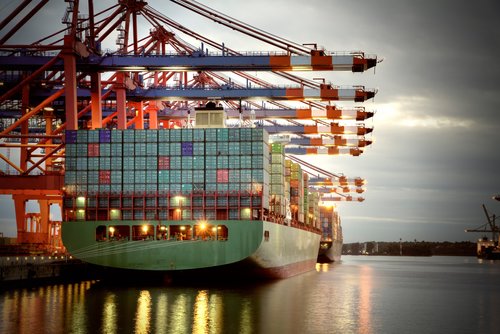When Angela Merkel meets Donald Trump on Friday, the elephant in the room will be transatlantic trade. With its export surplus, Germany is the focus of criticism by the US president. Yet, the surplus in the trade balance of other EU countries with the US is higher – after accounting for the size of the economy.

Trumps distorted view
The EU recorded a surplus in the trade balance with the US of around 154 billion euros for in 2015. Germany has the highest surplus of 54 billion euros. That is why US President Donald Trump is particularly threatening German export companies with protectionist measures such as rising customs duties. But other EU Member States would also be severely affected. For example, Ireland's goods exports to the US exceed Ireland's goods imports from the US by 24 billion euros. Since the Irish gross domestic product (GDP) is only one-twelfth of the German market, the Irish export surplus is relatively higher.
If the export surplus with the USA is related to the economic size, Germany is at a level with Sweden, Austria and Lithuania, with a surplus of 1.8% of GDP. In Ireland, however, the surplus in trade with the US makes up for more than 9.5 per cent of GDP. Even Denmark’s surplus with 2.6 per cent of GDP is much higher than the German surplus. These countries would thus be hit by Trump’s new protectionist measures at least as hard as Germany.
The US economy would also suffer from protectionism. Among other things, production costs in the United States would rise significantly. Investment goods and intermediate goods account for 81 percent of German exports to the USA and are in many cases essential for the production process in the US. It is hardly possible in the short term to replace these goods with cheaper domestic products, because these are often highly specialized products which cannot be produced without corresponding know-how and the associated research effort. The costs in the form of price increases for the newly introduced duties will then have to pay US consumers.
More on the topic
Not so Different?: Dependency of the German and Italian Industry on China Intermediate Inputs
On average the German and Italian industry display a very similar intermediate input dependence on China, whether accounting for domestic inputs or not.
IW
China’s Trade Surplus – Implications for the World and for Europe
China’s merchandise trade surplus has reached an all-time high and is likely to rise further. A key driver appears to be a policy push to further bolster Chinese domestic manufacturing production, implying the danger of significant overcapacities.
IW